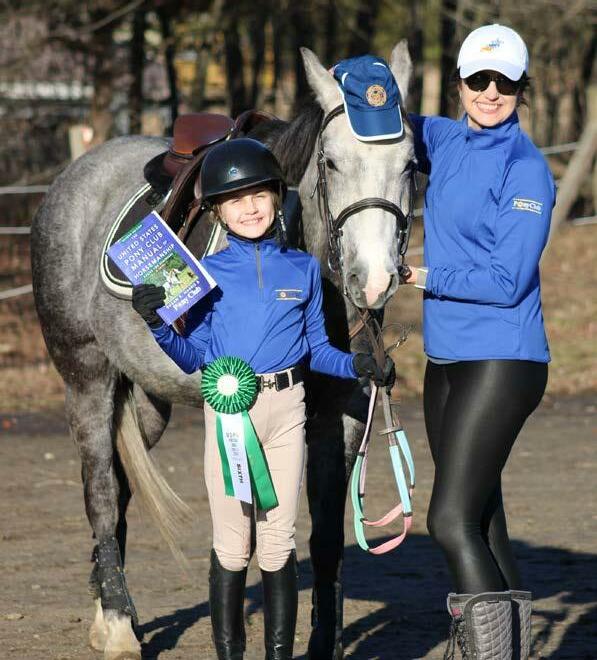












DISCOVER USPC, The Official Magazine of the United States Pony Clubs, Inc. is published three times a year by the United States Pony Clubs, Inc. and mailed to Pony Club families and Corporate Members. Readers are encouraged to submit ideas or articles for publication. Address all correspondence to the Editor at the above address. USPC reserves the right to refuse any advertising or copy that it feels is not in the best interest of the membership of this association. USPC is not responsible for the opinions and statements in signed articles and paid advertisements. These opinions are not necessarily the opinions of USPC and its staff. Pony Club recognizes that equestrian headgear that does not meet USPC Policy # 0810 is not safe, although certain equestrian activities pictured in this magazine may not adhere to these requirements. Change of address must be made six weeks before date of publication for next issue to be delivered to a new address. Address changes can be made to your USPC member profile online or by mail. POSTMASTER: Send address changes to United States Pony Clubs, 4041 Iron Works Parkway, Lexington, KY 40511-8483.
ABOUT ADVERTISING: Pony Club does not endorse any publication, service, or product. Advertising in DISCOVER USPC, The Official Magazine of the United States Pony Clubs, Inc. does not imply any such endorsement; nor does Pony Club warrant as to the accuracy of any claims made by such advertisements that claim to meet Pony Club needs or requirements. Advertising does not necessarily reflect the standards and practices of Pony Club.
PUBLICATION EDITORS, NOTE: Unless cited as having been reprinted from another publication, permission to reproduce any article or other editorial content published in DISCOVER USPC, The Official Magazine of the United States Pony Clubs, Inc. must be requested from the Editor at communications@ ponyclub.org and with the condition that credit is given as follows: Reprinted from (issue date) DISCOVER USPC, The Official Magazine of the United States Pony Clubs, Inc. with permission of the United States Pony Clubs.
© 2022 The United States Pony Clubs, Inc. All rights reserved. Reproduction in whole or in part without permission is prohibited. No rights for commercial use or exploitation are given or implied. DISCOVER USPC are trademarks of The United States Pony Clubs, Inc. registered in the U.S. Patent and Trademark Office.



website: ponyclub.org uspc@ponyclub.org inquiries@ponyclub.org shopponyclub@ponyclub.org marketing@ponyclub.org communications@ponyclub.org development@ponyclub.org executivedirector@ponyclub.org memberservices@ponyclub.org instruction@ponyclub.org activities@ponyclub.org testing@ponyclub.org advertising@ponyclub.org
ISSN 2767-1860 (Print) ISSN 2767-1887 (Online)

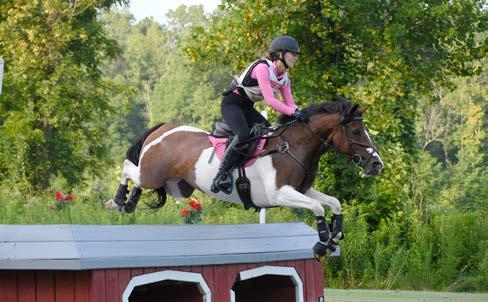

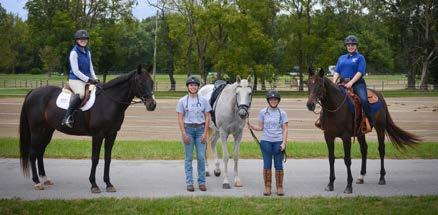
One of the most enjoyable parts of my job is attending any United States Pony Clubs event where there are members, ponies, and horses! Most recently, my travels took me to the picturesque Blue Ridge Mountains and Tryon, N.C., where hundreds of enthusiastic competitors and their faithful mounts met to showcase talents and skills, make new friends, and have fun at USPC Championships East. Just a couple weeks earlier, this same scene played out at USPC Championships West in Paso Robles, Calif. And though I was not able to attend USPC Championships West, I did get to enjoy it through the pictures, social media posts, and the wonderful stories shared with me by Erin Woodall, Director of Activities and Events at USPC.
As Pony Club members recited the Pony Club Pledge at the opening ceremony for USPC Championships East and at the main competitors briefing for USPC Championships West, I was reminded how sportsmanship and horsemanship are guiding principles for every member.
To see all the Pony Club members participating in Championships from all over the country, from all backgrounds, all levels of riding and ages, together as one, exemplifying the very best in sportsmanship and horsemanship, was very special and meaningful to me.
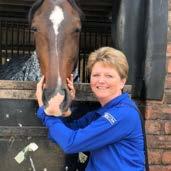
Why does it matter that Pony Club members stand for the best in sportsmanship? Because sportsmanship is a measure of character. And while it’s great to excel in equestrian sports, it is even greater to excel in character.
Why does it matter that Pony Club members stand for the best in horsemanship, which includes horse health care, nutrition, stable management, and handling and riding a mount safely, correctly, and with confidence? Because through horsemanship, one learns humility, responsibility, and respect. And again, while it’s great to excel in equestrian sports, it’s even greater to excel in the attributes of responsibility and respect for self, others, and our equine partners. If you haven’t recited the Pony Club Pledge yet, why not do so now.
I’m looking forward to seeing many of you at the 2023 USPC Convention in St. Louis, Mo., January 18–22.
Until then, happy trails!

Teresa Woods, USPC Executive Director
“As a member of the United States Pony Clubs, I stand for the best in sportsmanship, as well as horsemanship. I shall compete for the enjoyment of the game well played, and take winning or losing in stride, remembering that without good manners and good temper, sport loses its cause for being. I shall endeavor to maintain the best tradition of the ancient and noble skill of horsemanship, always treating my horse with consideration due a partner.”
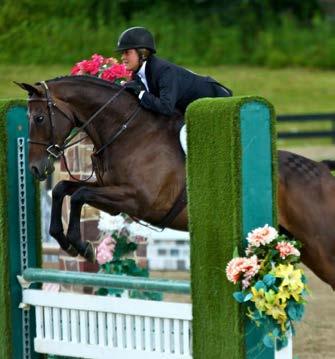
My only previous attendance at a USPC Championships was in the Pacific Northwest back in 2009. Having the opportunity to attend the USPC Championships East at the Tryon International Equestrian Center this year was truly a pleasure. What an incredible and beautiful venue. Thankfully, I had Teresa Woods as my guide and a golf cart as our trusty steed!
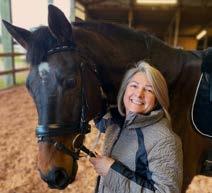
While the venue was awesome, what truly stood out to me is the dedication that our members show when they qualify and attend Championships. Being from the Pacific Northwest where the weather is different, I observed horses being taken care of in a way I have never experienced before. Competitors withstood hot, humid, wet weather. Horse Management oversaw the care our members and their mounts gave and received in the barns. And volunteers did everything imaginable, along with many very proud parents!
I had the opportunity to watch a little of each discipline, and I saw some bullseyes while watching the shooting phase of Tetrathlon. The Postman’s Chase and the Rope Race games during Mounted Games kept me on the edge of my seat. The dance between horse and rider is truly enhanced in the musical freestyles in Dressage. There were some spectacular rounds in Show Jumping. I am happy to report that as a Safety Coordinator for the cross-country phase of Eventing, while some were unable to complete their courses, it was a safe cross-country day. The knowledge demonstrated by Quiz competitors despite the heat and humidity was stellar. Our competitors in Western Dressage and Western Trail represented their disciplines with flexibility, proficiency, and skill.
As I am writing this article, I am thinking back through the competitions, and I realize each of the disciplines holds their very own special place in my heart. I look forward to attending again in 2023. Thank you to USPC Staff and everyone who attended and made USPC Championships East and USPC Championships West a success this year!

Respectfully,
Jennifer Sweet, USPC PresidentWe’re always by your side in providing your horse with the right care.
Long Live the Horse.

Developing responsibility, moral judgment, leadership, self-confidence, and a sense of family. I understand the importance of each part of the Pony Club family. Each—the local club/center and regions and those who work at the national level—all have a very important role in making the Pony Club family work. There is no doubt that on occasion, like most families, we have had our differences. But because we all want what is best for the members, we work out our differences and move forward.

For the past two years, I have been blessed with my Pony Club family helping me through some very difficult medical issues. I have endstage kidney disease. I need a kidney transplant. Over a year ago, Pony Club started helping me to locate a donor. Three of the people who stood up and said they would be willing to try and qualify as a donor are part of my Pony Club family.
Qualifying is not an easy task. It takes at least three months to work through the process. Most of that time is dealing with several medical tests. I am amazed and forever grateful that my Pony Club family was willing to come to my aid. People who are willing unselfishly to be an organ donor are truly very special people.
In August, a friend donated his kidney on my behalf. He was not a match but still was willing to give so that I may get a kidney from someone else who is. I can’t thank my Pony Club family enough for its willingness to help. That says a lot for the Pony Club family!
Yes, we may have our differences, but always remember—WE ARE PONY CLUB.—Mike Amos, Pony Club Dad and Papa
Editor’s Note: According to the United Network for Organ Sharing, who manages the transplant waiting list, there are 92,000 people currently waiting for a kidney, including Mike (at time of publication). For more information on being a kidney donor, visit www.kidneyregistry.org.
■ New Pony Club Podcast episodes are available on podcast players: Catch interviews with Alyssa Sands, member, provisional horse management judge, and National Office staff; grooming expert and club founder Cat Hill; and Julia Magsam, one Pony Club member who starred in the USPC documentary— ponyclubpodcast.buzzsprout.com

■ Keeping Horses Warm in the Winter—www. bit.ly/keeping-horses-warm-in-winter
■ A Story of True Sportsmanship Three Times Over—bit.ly/megan-hopkins-shows-pony-clubsportsmanship
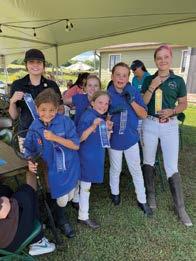
■ Adding Enrichment to Your Horse's Life— www.bit.ly/adding-enrichment-to-your-horses-life
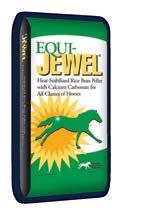
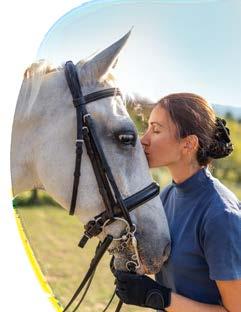
Are you bored of riding 20-meter circles or wondering how to help your horse gain more flexibility and stamina? Human athletes, while specifically training in their own sport, will add CrossFit, lift weights, or run to become stronger, increase stamina, and reduce the risk of injury. Horses that are cross-trained become more well-rounded and reach higher levels in their sports.
Cross-training with your horse involves expanding into another discipline to aid in the development of new skills and to work different muscles. Cross-training allows your horse to use and strengthen his muscles in different ways. Have you ever thought of introducing your Show Jumper to Foxhunting? Dressage training may be just what a Mounted Games or Polocrosse mount needs to become more supple and balanced. Trail obstacles can be a fun change of pace for an Eventing horse to challenge his mind and build confidence. And distance riding increases stamina in horses of all disciplines.
Cross-training is the foundation for a long, successful career for your horse. Incorporating different disciplines into your routine reduces repetitive motion injuries and breakdown of the horse’s muscles, ligaments, and joints by finding various ways to work the same muscles without doing the same movement day after day. Horses can also experience improved stamina, strength, coordination, and soundness with crosstraining. Cross-training in different disciplines helps improve your horse’s awareness of his
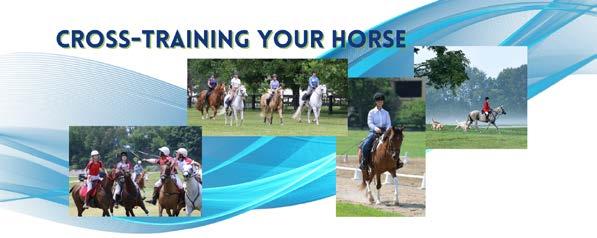
body and teaches him how to use different parts of his body in ways that are beneficial to his performance.
There are mental health benefits for your horse, as well. Working on the same movements over and over can create mental stress for your horse, as well as physical stress to his body. Varying your horse’s training prevents boredom and sourness and can improve his attention span and attitude. Horses tend to be more willing to participate when their training has variety.

When you put your horse in new situations, you expose him to the unfamiliar. Being exposed to a variety of situations makes your horse less spooky and more confident. You can’t expect your mount to be confident in new places when he sees the same things all of the time.
The benefits of cross-training are not just for the horse. As a rider, you can enjoy a mental break and gain a fresh perspective when experimenting with something new. Keeping things fresh and new can breathe life into your daily training routine.
When choosing your cross-training disciplines, you need to look at the areas your horse may be lacking and find a discipline that incorporates these skills. Cross-training doesn’t have to be complicated, but your horse should enjoy it.
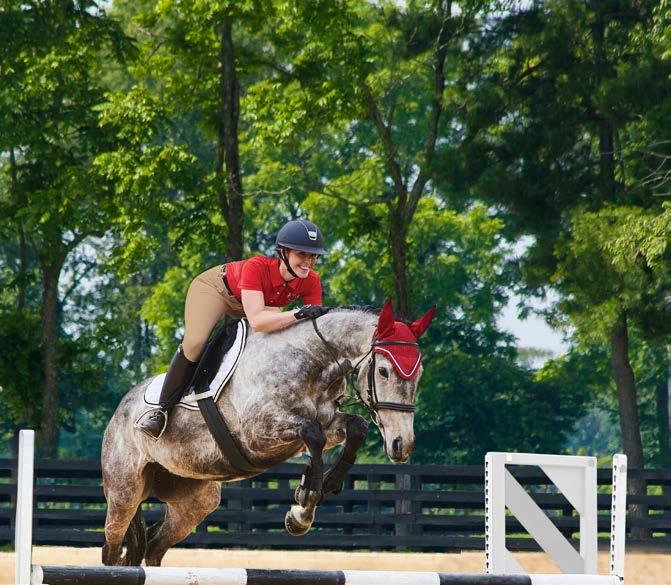
Maybe it's time to try something you’ve always had an interest in!
For more information, visit www. ponyclub.org and mouse over the “Membership” menu item and then click on “Disciplines.”
By Sue Beth Bunn, Activities CommitteeUSPC offers mounted and unmounted opportunities and education in 17 different equine disciplines. Pony Club truly can be "where it all begins" for you to explore new ways to enjoy your mount and have him enjoy his work. Challenging yourself and your horse to try something new is a great way to improve your seat, coordinate your use of aids, and create better balance. Your horse will enjoy the break from the daily grind of repetitive training.
Over the next few months, USPC will be sharing interviews with several top athletes in many different disciplines. Check out the Pony Club communication and social media channels for discussions of the benefits different disciplines offer your horse, the importance of creating variety in any training program, and how several top trainers were first introduced to their discipline and found their passion for it.


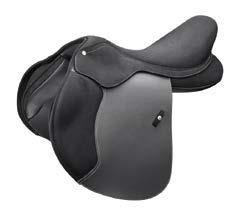
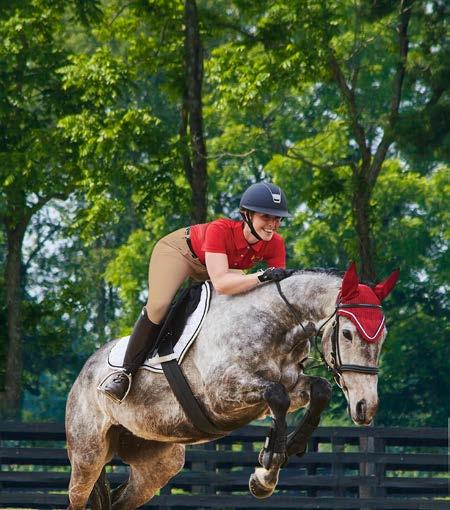
Age: 19
Club/Region: Morning Star Equestrian Center Pony Club Riding Center, Midsouth Region
Years in Pony Club: 3
Current certification (and/or certification currently working on): C-2 HM, C+ Dressage. I’m currently working on my H-B certification.
What disciplines and/or activities are you involved in?
Dressage, Horse Management, Quiz
Tell us about your current mount(s) and what you do with them.
My current mount is a lovely black 2017 Westphalian mare named Delight. Delight has a sweet disposition on the ground and displays great intelligence and athleticism under saddle. Because she is still a young Dressage prospect, I am currently taking my time establishing correct basics and getting her acclimated to things that she may encounter in a show environment.
Tell us about your goals (with Pony Club, with riding, life). My goal for Pony Club is to achieve my “A” certification in Dressage, as well as becoming an Examiner. I’d like to compete at the FEI North American Youth Championships in the future with Delight. One day, I hope to earn a United States Dressage Federation Gold Medal and to be a Dressage judge and trainer.
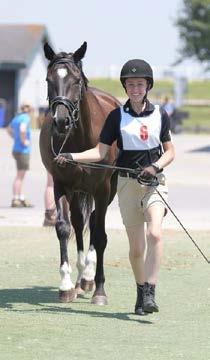
There are many “favorite things” when it comes to Pony Club. A big thing to note is the teamwork aspect. I enjoy working alongside members who are equally driven and passionate when it comes to horses. Also, I love that Pony Club has provided many leadership opportunities for me to take advantage of. These

experiences have boosted my confidence and have taught me how to “make a change” in the world. In my opinion, I think that this organization does a fantastic job at educating its members on how to become responsible horsemen/ horsewomen and why safety is always the top priority.
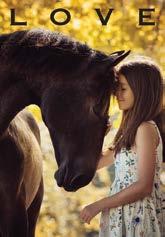
What is one thing you would tell members first joining Pony Club?
I would tell members to take advantage of the opportunities that Pony Club offers you. Even if you don’t aspire to be a professional equestrian, these opportunities will prepare you for other situations that you may experience in school or at work.
What is your favorite way to prep for a Horse Management (HM) certification?

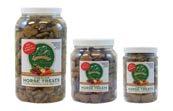
My favorite way to prep for a Horse Management certification is to study the Standards of Proficiency. Once I understand the Standards, I take notes about what I need to know to pass each section. I save myself plenty of time to practice anything that is hands-on, like bandaging, for example. If I’m really struggling with something, I can always talk to my trainer, farrier, veterinarian, etc.
If you could try out any other discipline or activity, what would it be and why?

Eventing, because that is what I wanted to do when I was younger. I did experiment with Eventing a little bit with my previous buckskin gelding,
Scotch. Though I prefer Dressage, I do think that Eventing is a beneficial form of cross-training, because it targets different muscles than flat work and can be a method to improve trust between the partnership of horse and rider.
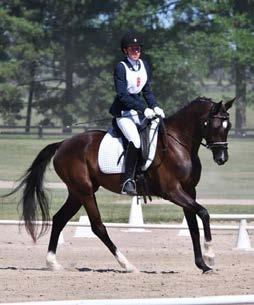
My favorite Pony Club memory was competing at the 2021 USPC Festival with my previous dancing partner, Scotch. That was my last competition with him before I sold him. He put in his best effort, and I couldn’t have asked any more out of him!
What makes me #PonyClubProud is that it is preparing me for my future career as a Dressage professional. Pony Club has equipped me with a plethora of skills that I will surely utilize throughout my life.
Is there anything else you would like to tell us?
I just appreciate that this organization exists!
ponyclub.org


For anyone striving to do well in dressage, these tips can help you be ready to ride a solid test for your certification. It is easy to show quality work to the “standard” in a warm-up arena, but the real challenge is to put a test together with accuracy and harmony in a dressage arena. This takes practice—practice at home and practice in the show ring—until you can perform a solid test. Try not to come to a certification without riding the test in a show, or, better yet, lots of shows. Horse shows are easier than certifications; they are a test of your training. And before climbing in the saddle, you can learn by watching videos from different angles and/or looking at diagrams of each movement. Both let you see the figures in the space.
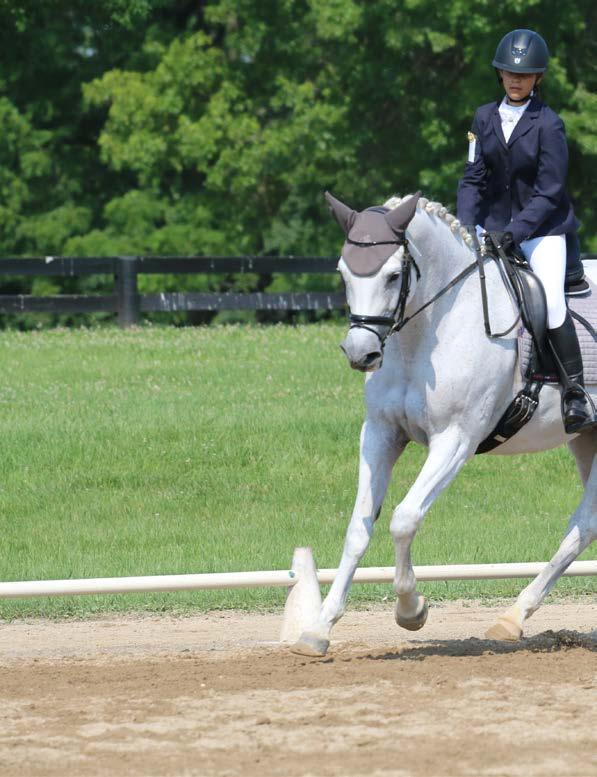
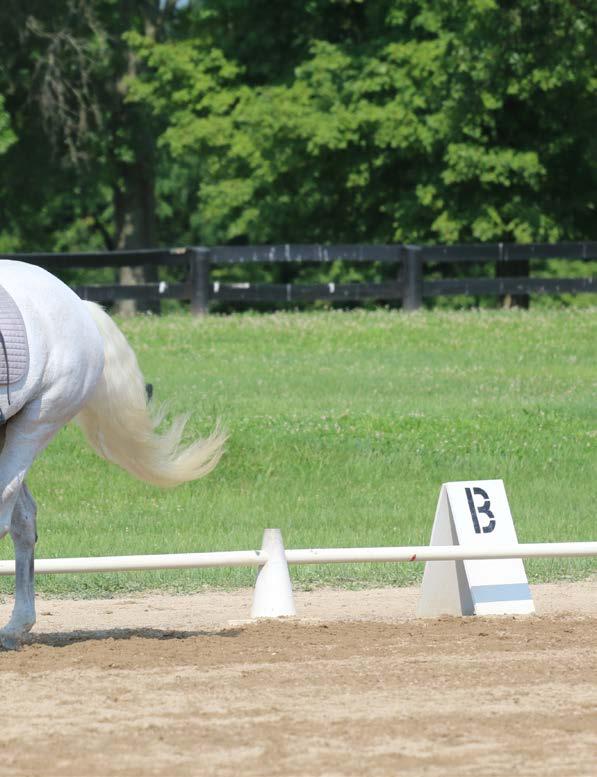 By National Examiners Anne Moss and Nancy Grout
By National Examiners Anne Moss and Nancy Grout
First, you want to understand the purpose of the test, and this can be found at the top of each dressage test sheet. Read the directives for each figure and movement to know what the judge is evaluating, and look at the movements and see which have a coefficient of 2 (x2), meaning they are more important movements and scored double. You will want to ensure you practice those movements with special care to get the best score.
Before you memorize a test, you need to have some sort of “arena” set up. Set up an arena (with letters) on a lawn, rug, or a barn aisle. The 12 standard dressage arena markers are (as starting at 6 o’clock going clockwise):
■ For a 60 x 20 meter arena, A-K-V-E-S-H-C-M-R-B-P-F with “invisible letters” of D-L-X-I-G up from A to C.
■ For a smaller dressage arena, at 40 x 20 meters, the marked letters are A-K-E-H-C-M-B-F, with “invisible letters” D-X-G up from A to C. (See the illustration on opposite page.)
Here are a few methods to help memorize any test.
■ Walk the test while saying the movement aloud. For example, “Enter A at working walk,” or “Enter and walk down the centerline. Then X-Halt and salute,” which translates to halting at X so you can practice your salute.
■ Write the aids and training movements you would do for the entire test. For example, “Come off right rein-— stiff direction, keep my left rein near my horse’s withers and my left shoulder back through the turn so he does not overbend in the neck, soften right hand, support…”
■ Draw the test’s movements as you recite the test. Mark specific lines, such as a dotted line for a trot and a short line for a lengthened trot; or use first letters for each gait, such as “T” for trot, LT for “lengthen trot.”
■ Finger draw the test’s movements in a pan of uncooked rice. Place rice in a cookie sheet enough to cover the sheet bottom. Using your index finger [as a pen/pencil], draw the movements as you recite the test. For example, place your index finger into the rice as you draw a straight line to X while saying, “Enter working trot.” Then stop moving your finger at X while saying, “X, halt and salute.”
■ Test yourself by saying the test out loud with loud music playing or with other distractions.
At home, you’ll want to be able to test in a dressage arena, which is usually 60 x 20 meters. Dressage boards are 4 meters long, and knowing the length helps with the geometry of the movements.
ENTRANCE: Enter the centerline from the horse’s stiff side for a straighter entrance. When riding multiple tests in a day/weekend, enter the centerline from the same direction you will turn at C. For example, enter off the left rein for tests that indicate a left turn at C. If you are using a competitor bridle number, put the number on the same side of the headstall that you will be turning at C. Don’t forget to look the judge in the eye. Ride forward down the centerline. Remember, the quality of the gait is judged along with the halt and the transitions in and out of the halt.

THE CENTERLINE: Always practice the centerline as it is the first and last impression you will make on the judges. In addition, several movements are from the centerline. As you practice riding down the centerline, picture an imaginary line bisecting your horse. He should stay right on the centerline. At G, ride shoulder-fore, which is a lateral movement where the horse puts more weight on the hind legs as he steps actively under his body. This helps him prepare for the bend in the turn at C and at the corner. Use the outside aids to define the turn and keep your horse from falling off the centerline.
THE SALUTE: The salute is five steps, although if you are carrying a whip, it consists of six steps. Reins should be in the left hand, and the whip’s top, if one is carried, should be tucked under the left hand’s thumb. The fingers and arm of the right arm should be stretched out and pointed down at a 45-degree angle.
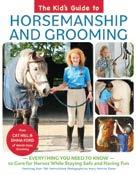



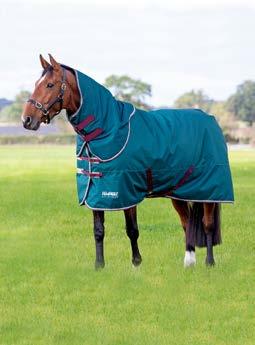


For the salute, the fingers and arm of the right arm should be stretched out and pointed down at a 45-degree angle and only the head should bow down.
Do not place the arm behind the right thigh, because if the horse turns his head to the right, then the judge cannot see the right arm. Nod your head down; do not bow at the chest. Your right hand will retake the reins and get contact back, and you will then strike off to the directed gait at the trot or canter.
THE HALT: The halt at X needs to be immobile for three seconds, as the salute above will take that amount of time. Do not “fix” an unbalanced halt. The score will drop if the horse moves any feet or backs after the initial halt. Fix it by riding a better-balanced transition next time.
CORNERS: To ride a better corner, half-halt before and after to help balance the horse. Good corners are the beginning of a good next movement or figure. Use the corner to set up the next move—every corner every time. Go deep enough into the corner so that you can begin the next movement or figure as your body passes the corner letter at the letter. A good corner can add a half a point to the movement score, which can add up to a lot of points at the end of the test.
DIAGONAL LINES: Aim the horse a stride before the letter to be able to execute a second movement at that letter. For example, if moving from M to X to K, trot the diagonal, and at K, canter on the left lead.
LEG-YIELDS: During a leg-yield, keep your shoulders level and facing the short side. Ride leg-yields and half-pass exactly from letter to letter to show correct crossing and lateral balance.
SHOULDER-FORE: This is useful to set up a diagonal or to help straighten haunches leading down the straight side of the arena.
If riding a 20-meter circle, if the size is wrong, it is better to make an 18-meter circle than a 22-meter circle (i.e., smaller is better than too big). Large figures show a lack of control of the horse’s balance and direction and usually result in the loss of a point. If the figure is too small but well executed, the score may not be lowered.
Practice circle geometry with cones by placing a pair to go through, 4 feet apart at each straight stride on the circle—A side, X side, etc. Think about the math. For example, if trotting a 20-meter circle equals 24 strides, then each quarter of that circle rides six strides. If trotting a 10-meter circle takes 16 strides, then each quarter of that circle rides four strides. A volte circle of 12 strides might then equal six to eight meters. This can also be applied to a canter circle. For instance, if you are cantering a 20-meter circle, each quarter would be six strides to total 24 strides.
The judge will evaluate the quality of your horse’s first movement, then the quality of training, and the execution of movements and figures. So, make sure you are riding to show off your horse’s scope with ground-covering strides to show engagement and swing though the topline to get the best score for correct training.
Is the medium walk tracking up, meaning that the hind leg hoof should step fully into the hoofprint left by the front leg? Yes, it must. The free walk should be a march and show clear
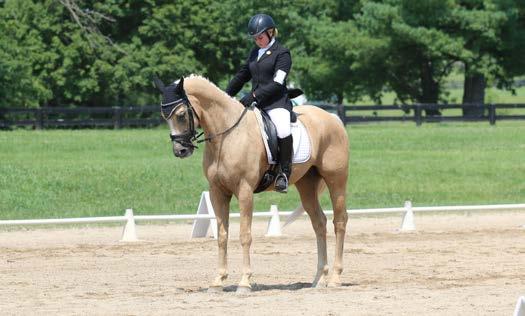
overtracking with stretch through the topline, which is when the hind feet overstep, touching the ground clearly in front of the hoof prints of the fore feet. The working trot should also track up. The canter must cover ground with “jump.”
Transitions should be shown riding forward from one gait to the next without shortening the steps; this is not easy but a real test of your coordinated aids and the quality of balance of the horse.
Keep a light contact in the trot stretchy circle, and keep the leg on to help the horse maintain the bend and lift through the ribcage and abs to swing in the back. Read the directive for this—the nose should stretch down to the level of the chest or lower for a satisfactory score.
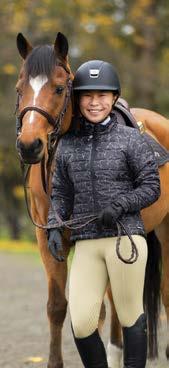
The stretchy trot circle and free walk stretch through the topline are real indicators of your horse using his back correctly. Collected gaits are created by engaging the hindquarters and coordinating the aids with half halts to help the horse attain a more uphill balance. (Some people confuse collection with shortening the steps, which actually constrains the movement and decreases the length and quality of the gaits.)
It’s important to bring a horse to your test that can perform at the level of the certification. If the horse is too green for the level you are testing, it will be a challenge for you to meet the standard.
■ More on collection: www.usdf.org/EduDocs/The-Horse/The_Mysteries_of_ Collection.pdf
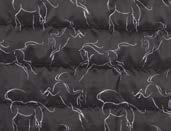
■ More on the pyramid of training (aka, the training scale): www.usdf.org/ EduDocs/Competition/The_New_Pyramid_of_Training_Marilyn_Heath.pdf
■ Observe the forward riding and quality of gaits with Laura Graves riding her Grand Prix mount Verdades at www.youtube.com/ watch?v=VZg3LSKXcYU&t=49s
■ The USDF's 2023 "On the Levels" video series at www.vimeo.com/ ondemand/2023onthelevel

Everything It is easy to show quality work to the “standard” in a warm-up arena, but the real challenge is to put a test together with accuracy and harmony in a dressage arena. This takes practice—practice at home and practice in the show ring—until you can perform a solid test.
all season
The two 2022 USPC Championships were a big hit with attendees.

 Photos by GRC Photo, Melissa Dabadie, and Tracie Johnson
Photos by GRC Photo, Melissa Dabadie, and Tracie Johnson
Competitors traveled to two locales—East and West—to showcase their skills in a variety of disciplines at the 2022 USPC Championships. First, competitors who vied for top honors at USPC Championships West headed to Twin Rivers Ranch in Paso Robles, Calif., July 1–8. Then, Tryon International Equestrian Center in Mill Spring, N.C., came alive with activity from competitors at USPC Championships East, July 27–31. Awards abounded in Dressage, Western Dressage, Western Trail, Eventing, Mounted Games, Quiz, Show Jumping, and Tetrathlon.
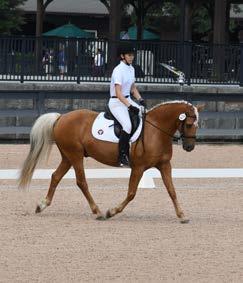
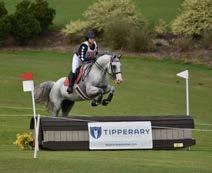
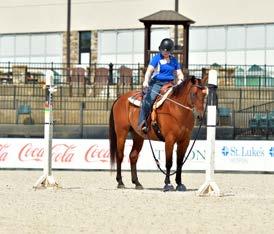
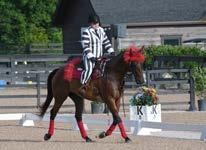


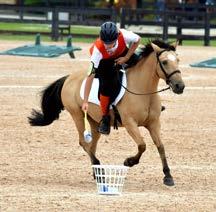
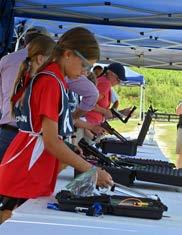
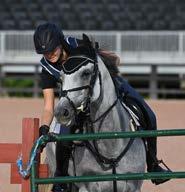





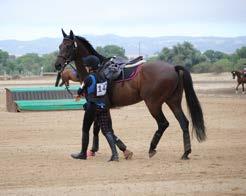
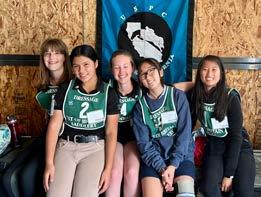
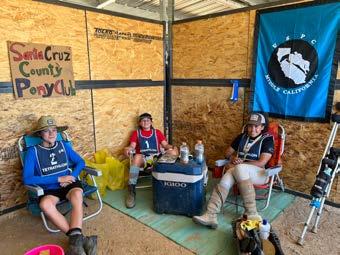
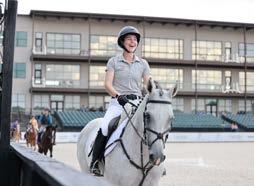

Your horse’s health starts with a great grooming routine, no matter the season. As the flies begin to disappear and your horse’s winter coat grows in, your grooming routine may change a bit. Cold weather has its own set of grooming challenges, each with easy solutions.
When the air gets dry in winter, you may find your horse’s coat is filled with static. Tail hairs may cling to your horse’s body, and sometimes you create static shocks

when removing blankets or grooming your horse. While static shocks are not dangerous, they can be annoying as you groom. Static in the skin and hair coat will hold on to dirt and dust, no matter how much you brush.
The solution to combating static is to add moisture to your horse’s grooming routine. A tiny bit of dampness will also remove any remaining dust from the surface of your horse’s hair.
Use a grooming spray, like a norinse shampoo, to cut the static. Spray a little bit on your currycomb and dandy brushes, or give your horse a few sprays over his body. A grooming spray will also add some shine to your horse.
You can also condition the coat with a shine spray, which will reduce static.
A damp rag, washcloth, or sheepskin grooming mitt is another option to bust static. Wipe your horse before grooming to reduce static. Finish your grooming session with another damp rag to lift any remaining dust from the coat.
Horses may lose a bit of shine as they grow their winter coats. Dry and brittle hair that needs a bit of conditioning can benefit from buffing with a light grooming oil. Oil buffing will also produce a shine and help your horse’s coat stay waterproof.
There are a few different ways to oil buff after grooming. Apply a tiny amount of grooming oil, about the size of a dime, to a dandy brush. Vigorously brush your
horse’s coat to work the oil in. You will need to reapply the oil a few times.

Another option is to hot towel your horse with a bucket of hot water mixed with some grooming oil. Mix about half a gallon of hot water with a few capfuls of grooming oil. Swirl this mixture around with a washcloth before wringing out almost all the water. Use your washcloth as a currycomb, creating circular patterns as you buff your horse. Your cloth should not make your horse wet.
All horses get stains, and you will easily see them on gray coats. A simple way to remove stains and eliminate odor is to use a no-rinse shampoo after thorough grooming. Spray any stains lightly and wait a few minutes. Use a dry or damp cloth to wipe away stains and odors. Using a cloth that is too wet will result in a foamy horse.
To help prevent deep stains, be sure to oil buff your horse. The conditioning qualities of a grooming oil also help repel stains.
A horse’s winter coat is terrific for keeping warm, but it will make some horses too sweaty after exercise.
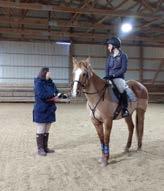
Consider trace clipping or body clipping your horse to reduce the amount of sweat created. This makes grooming easier and keeps your horse more comfortable during exercise. A clipped horse also dries faster after riding.
Horses that get somewhat sweaty but not enough to warrant clipping can dry faster with the help of wool or fleece coolers. After any sweat marks dry, it’s easy to curry them out. A cactus cloth is also great for buffing away dried sweat marks.
Your horse’s skin isn’t the only thing that can dry out in winter. Some tack rooms are cold and dry in the winter, and your leather tack may start to feel a bit stiff. Humidifiers in tack rooms can prevent
this, and it always helps to condition your tack frequently in winter.
Mud is part of horse life, and it’s a little bit more challenging in the winter. Muddy legs need to be clean before you can wrap your horse’s legs or use sport boots.
Groom away any mud on your horse after it has dried. This is more effective for dirt removal and leaves your brushes dry. Muddy brushes need to be cleaned before another use. On warmer winter days, you could bathe your horse with shampoo to remove all traces of mud for a fresh start. You may consider trimming or clipping your horse’s lower legs to make mud management easier. However, clipping with a #10 blade may remove too much of the hair and thus not be the best option for some cold and snowy climates.
There are two methods to leave enough hair on the legs but trim away excess feathers. Instead of clipping against the direction of the hair growth, flip your clippers upside down and rake the hair downwards until you are satisfied. Your other choice is to use clipper combs, which attach to your blades and put some distance between the cutting edges and your horse, removing less hair.
Grooming in the winter is a great way to keep tabs on your horse’s health and happiness. And, a well-groomed horse is more likely to stay stain-free and avoid irritations from mud and dirt under the saddle.
Check out all of the Shapley’s Superior Equine Grooming Products at your local tack store or online retailer to help you conquer all of your winter grooming challenges, and visit www.shapleys.com for more expert grooming advice.
U.S . PonyClubs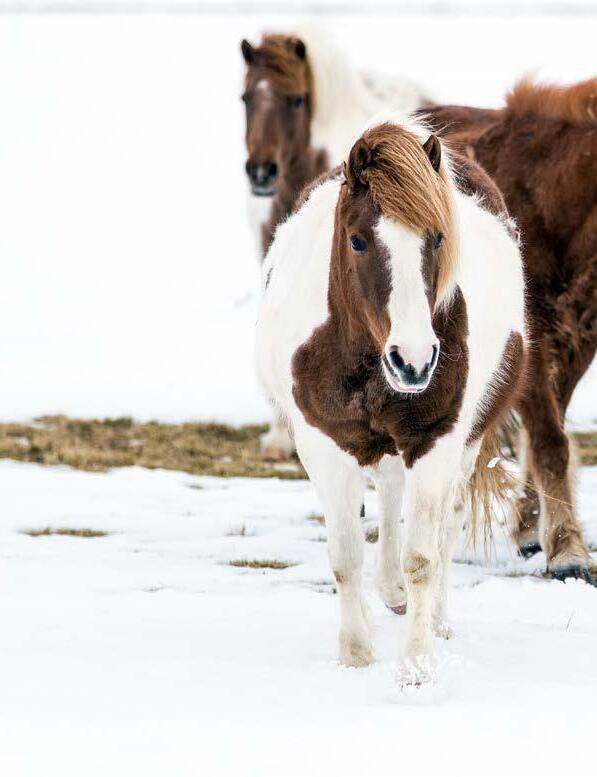
Hay, or another source of fiber, is absolutely necessary for the horse to maintain a healthy and properly functioning digestive tract. But providing your horse with high-quality hay year-round can be a challenge due to weather factors. Many horse owners have already been working hard to locate enough quality forage to last the winter and are combating hay shortages and high hay prices. Incorporating forage alternatives into your horse’s diet can be a great way to improve the quality of hay being fed, stretch your hay supply, and ensure that your horse’s daily fiber requirements are being met.
Horses should be provided with 1.52% of their body weight in forages and roughages. Horses have a natural desire to graze throughout the day, so they must have a high-fiber diet. Horses living out on pasture may graze 10-17 hours per day. Slow consumption of pasture, hay, and other forages fulfill both physical and psychological needs.
Physically, optimal digestion and fermentation require a slow-feeding approach of adequate fiber—or colic, gastric ulcers, increased dental issues, and too much weight gain can result.
And psychologically, if horses aren’t able to consume forage slowly, they can develop all sorts of behavioral issues out of boredom.
The horse’s hindgut is home to billions of microbes that utilize fiber and transform it into energy. In addition, horses are classified as hindgut fermenters, and their normal gut function is dependent on an adequate fiber supply. Fiber provides bulk and helps with the passage of food through a complex digestive tract. Without adequate fiber, horses are prone to digestive issues such as colic and gastric ulcers.
1. Make the most out of your pasture by grazing, rotating, and fertilizing your pasture to help it last through the warm seasons. As pasture quality declines heading into winter, you will need
to begin transitioning your horses to your hay supply. Take time to gradually add in hay and increase the quantity over several weeks. Feed the amount that is just right for each of your equines.
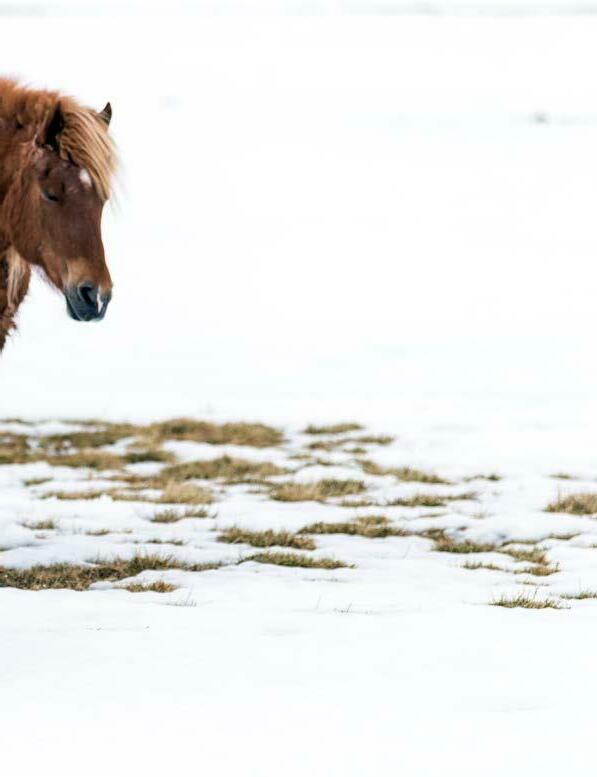
2. Equine nutritionists recommend getting your hay analyzed so you can use the results to calculate how much hay each horse needs. Your local agricultural extension office may be a helpful resource for information about this process. Reach out to an expert, such as your vet, an equine nutritionist, or the pros at Triple Crown Feed for help tailoring a feed program that works with your hay to ensure your horse’s daily nutrient needs are met. To grab a sample of hay for testing, see “How to Take a Hay Sample,” on page 28.
3. Proper storage of hay is essential to avoid mold and reduce waste. Also, always feed your oldest hay supply first and mix in any new supplies over a seven- to 10-day transition period, and always check over the hay for mold, insects, and foreign objects before feeding.
4. Use a feeder to reduce hay waste, and consider using a hay net to slow down how fast your horses consume their hay. The amount of hay you can save by doing this is quite astonishing. It was reported in a study from the University of Minnesota that feeding round bales without a feeder can result in up to 50% of the bale being wasted. Feeding small square bales without a feeder can cause a 10-15% waste in hay.
Unsplash/Michal VrbaHaving your horse’s hay analyzed can provide important information about the nutritional content, which can then help you develop a balanced diet with your vet, an equine nutritionist, or a Triple Crown Feed expert. Here’s how to take a sample for testing.

Step 1: Obtain a hay probe—this is a cylindrical tool approximately 12- to 24-inches long. Your local extension office may have one that you can borrow. Connect the hay probe to a drill or a hand brace tool.
Step 2: For each sample, get a sealable plastic bag, and write a descriptive label on the outside of the bag, including the type of hay and date.
Step 3: Probe each hay bale in the center of the short end of the hay bale between the strings. For a truly representative sample, randomly select 12-20 bales to probe.
Step 4: After the bale is probed, remove the probe from the drill and deposit the core sample into the plastic bag. Repeat for all probings.
TIP: Your sample should fill a quart-size sealable plastic bag.
Step 5: Send your sample package to a forage testing lab for analysis.
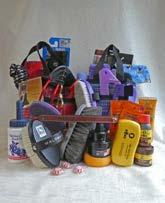
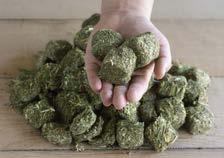
Some horses could benefit from the forage alternatives mentioned below, and it could be a way to stretch hay supplies, especially when the local hay supply is lacking.
Hay Cubes: Dried, chopped hay compressed into cubes; usually contains alfalfa, timothy hay, or a mixture of the two. Hay cubes help support horses with poor teeth and improve overall forage quality by providing a consistent hay source.
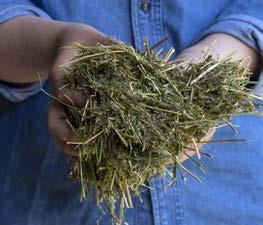
Hay cubes can provide a consistent hay source.
chopped forages, and it can improve overall hay quality in the diet.
Pellets: Created using a process of heat and steam on ground hay or other high-fiber ingredients. Pellets can be mixed with water to form a mash for horses that have difficulty chewing and swallowing.
Chopped Forages: Harvested at optimal maturity level and chopped to approximately 1-2 inches in length. Horses with poor teeth could be given
Have additional questions about hay and forage alternatives, or creating a feed plan to meet your horse’s nutritional needs? Talk to a Triple Crown Feed expert for more recommendations. www. www.triplecrownfeed.com or call 800451-9916.
Horse
the latest and most reliable news and information on horse health in our award-winning publication, reviewed by our esteemed advisory board of AAEP veterinarians. Each monthly issue is packed with premium content that is not yet available online.

One of the most frequent questions the Activities Department gets is, how do I prepare for my upcoming rally? Beyond riding your horse or studying your Quiz materials, you can review the rulebook and annual newsletter for the discipline!
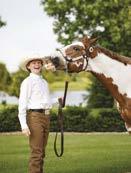
Each discipline rulebook includes essential information for a competitor to succeed at a rally. It's broken in to the following sections to help you quickly find information.
Section I: USPC Uniform Officiation Rules is the go-to section for content on each competitive discipline. From Code of Conduct Expectations to the Unauthorized and Permitted Assistance parameters, this info is the same across disciplines.
Section II: General Regulations includes any regulations/rules regarding team configurations, competition levels, Championships eligibility, competitor attire, and saddlery rules. This section is crucial for those looking to qualify for Championships.
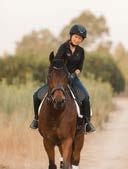
Section III, Discipline Competition Specifics has all the nitty-gritty information, such as the general format for the competition and discipline-specific rules.
Section IV, Scoring is one of the most important components of the rulebook, as it outlines competition scoring, the inquiry process, and placings within the discipline. Understanding discipline scoring is important to help members identify and work
with volunteers to get scoring mistakes corrected.
Section V: Officiation is another often-overlooked portion of the rulebook, where members and parents learn about the rally officials, their duties, and responsibilities. Knowing what the officials oversee in the competition gives competitors a leg up when making inquiries and protests regarding scores.
USPC posts the new years’ rulebooks by January 1 of the competition year. Sometimes, during the editing process or outside organizational changes, additional information or updates regarding competition may need to be shared after the rulebooks are published. This is where the USPC newsletters come to shine! Here, USPC shares any updates the rulebooks were unable to capture or future opportunities within the discipline. These are published on February 15 of each year.
Remember, knowledge has power! Reading your discipline rulebook and annual newsletters will give any competitor a good understanding of the competition ahead and even a competitive edge. We encourage all to look at your discipline’s rulebook and annual newsletter. Who knows, maybe you’ll see some changes when the new year rolls around.
The Activities Department and Competitions committee works diligently to provide quality information for members preparing for rallies. If you have suggestions for improvements to the rulebooks or annual newsletters, please email activities@ponyclub.org
The USPC Heritage Society recognizes individuals who have included Pony Club in their estate plans. Pony Club is grateful for the many loyal friends who have expressed their commitment to the organization through a planned gift. This lasting tribute will guarantee opportunities for future generations of Pony Club members.
For the full list of Heritage Society members, visit www. ponyclub.org/Giving/PlannedGiving.aspx

To learn more about the Heritage Society, or if you have provisions for Pony Club in your estate plans and would like to be added to the list, please email development@ponyclub.org
Thank you to the generous sponsors who will be joining Pony Club for the 2023 USPC Convention Sponsored by Stephens College in St. Louis, Mo., January 18–22. ■ Stephens College
American Association of Equine Practitioners
Arabian Horse Youth Association
Banixx Horse and Pet Care
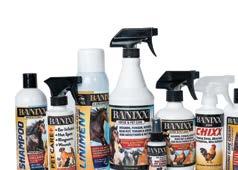
Brooke USA Foundation
Dressage4Kids
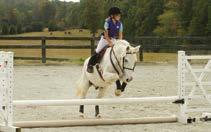
Fair Hill Saddlery
Grayson-Jockey Club Research Foundation
■ Indian Hills Thoroughbred Farm
Kentucky Equine Research
Santa Cruz Animal Health ■ Specialty Program Insurors, Inc. ■ Trafalgar Square Books ■ Unicorn Trails ■ University of Missouri College of Veterinary Medicine
Western & English Sales Association (WESA)
We are grateful for our corporate sponsors who support USPC all year: ■ Kerrits, the Official Apparel Sponsor ■ Shapley’s, the Official Grooming Products Sponsor ■ Triple Crown, the Official Feed Sponsor ■ Wintec, the Official Saddle Sponsor ■ Zoetis, the Official Equine Health and Wellness Partner ■ The Horse
To partner with us in 2023, please email development@ ponyclub.org

For important announcements and news from USPC, subscribe to the Pony Club Enews at www. bit.ly/pony-club-enews-signup.
ponyclub.org
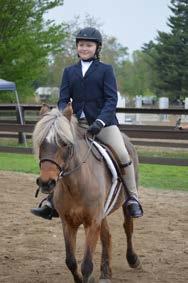

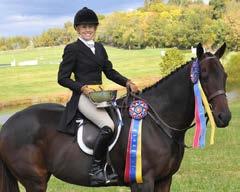
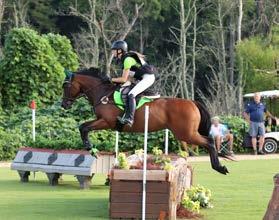

 Audrina McCall, of Tennessee Valley II Pony Club, Midsouth Region, aboard New Moon
Emmalin Haseltine, of Twin Gates Farm Pony Club Riding Center, Central New England Region, riding Snickerdoodle
Lily Abrams of Twin Gates Farm Pony Club Riding Center, Central New England Region, on Brandie
MaryCrane,formerDCofNorfolkHuntPonyClub,Central NewEnglandRegion,posingwithForeverBernardini
Audrina McCall, of Tennessee Valley II Pony Club, Midsouth Region, aboard New Moon
Emmalin Haseltine, of Twin Gates Farm Pony Club Riding Center, Central New England Region, riding Snickerdoodle
Lily Abrams of Twin Gates Farm Pony Club Riding Center, Central New England Region, on Brandie
MaryCrane,formerDCofNorfolkHuntPonyClub,Central NewEnglandRegion,posingwithForeverBernardini
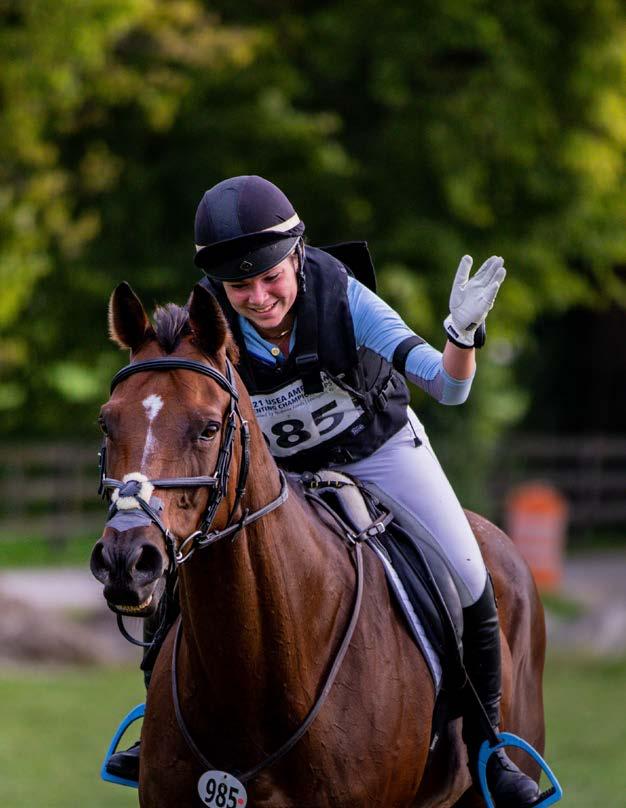
Western Dressage fashion in competition varies from a western-styled shirt and jeans to fully bedazzled outfits and chaps, and also includes western-style helmets.
 Photo by Don Stine/CourtesyWDAA
Photo by Don Stine/CourtesyWDAA
Western Dressage grew from the idea that the principles of classical dressage benefit any horse and rider, no matter what kind of saddle or equipment is being used.
Western riding, in general, evolved from the ranching and working horse traditions of the cowboys in the American West. As a relatively new equestrian sport, Western Dressage blends together training techniques from classical dressage and western horsemanship. It promotes balance, rhythm, and carriage in the horse.
Cindy Butler, president of the Western Dressage Association of America (WDAA), says that Western Dressage can give any horse a good riding foundation. According to Butler, the sport was developed around a training system that any rider can use to benefit any horse. It includes seven progressive levels, starting at the Intro Level with walking and jogging and going up to Level Five, with flying lead changes and pirouettes.
“Western Dressage welcomes all breeds of horses, ponies, donkeys, and mules,” says Butler. Gaited horses can also participate.
“All horses can do well in Western Dressage, because judges appreciate all breeds of equines and judge them based on how well they perform while considering their unique conformation,” says Butler.
Western Dressage and Pony Club Pony Club has been incorporating Western disciplines for more than
10 years and offers opportunities to compete and earn certifications in Western riding. Beginning in 2017, Western Dressage was the first Western discipline to be offered at regional rallies and national championships, and it is increasingly popular with Pony Club members. In 2022, Pony Club officially partnered with WDAA in recognizing both USPC Championships East and West with WDAA. In 2023, USPC will offer open WDAA classes in conjunction with USPC Championships Central and East.
Pony Club member Jessica Bahny is an H-HM and a C-2 in Eventing, Dressage, Hunter Seat Equitation, and Western, and a member of the Portuguese Bend Pony Club in the Camino Real Region. She has
Western Dressage is that it emphasizes harmony between horse and rider above all else. She also appreciates the inclusiveness of the sport.
“At the WDAA World Show, they allow gaited and non-gaited horses, they have breed awards for every competing breed, and strive to provide opportunities for all horses to be able to compete and have a chance to score well,” she says. “It is this inclusion and focus on harmony that keeps me coming back to this amazing discipline.”
Western Dressage in Pony Club is easily incorporated into Dressage rallies since both rallies use the same equipment and many officials are dual-licensed. Members compete on a team of three to four riders with a stable manager. Individual competitor scores combine with team Horse Management scores for final placings.
Pony Club members can also compete in WDAA competitions from virtually anywhere! “WDAA recognizes online shows as well as live shows,” shares Butler. “Riders can video their rides with their phones and send the videos to be judged, then earn ribbons, points, and great feedback from the judges to help them with their horses.”
competed in Western Dressage at Pony Club rallies since the discipline was first introduced, including the 2021 USPC Festival Championships. She also enjoys competing in WDAA shows and has ridden at the WDAA World Show.
What Bahny loves most about
For those who are new to Western Dressage, one of the most fun parts is the fashion. A variety of western show clothing styles and elements can easily be incorporated into your attire for Western Dressage competition. There are even helmets with western styling.
ponyclub.org
“It is this inclusion and focus on harmony that keeps me coming back to this amazing discipline,” says Jessica Bahny, of Portuguese Bend Pony Club in the Camino Real Region.
“If you want to stay classic and simple, a western-style shirt and jeans will do just fine. On the other hand, if you want to go all out with a bedazzled shirt and chaps—go for it!” shares Bahny.
Just be sure to review the appropriate rulebook (USPC or WDAA) to ensure that your show look meets all the requirements for the competition.
Bahny started riding and competing in Western at the age of 7 and joined Pony Club at the age of 9 because she wanted
to learn to jump. She fell in love with Horse Management (HM) and quickly progressed in certifications for HM, where she holds an H-HM, as well as riding—she’s a C-2 in all the riding tracks and plans to pursue a C-3.
“In addition to learning to jump, I did a lot of Dressage, so it was only natural to me to combine my two backgrounds and try my hand at Western Dressage,” she says.
“I’ve ridden and trained a variety of horses: different breeds, attitudes, and ages,” adds Bahny. “I love mixing up my rides so that my horse and I don’t get stuck with a boring routine. One day we may be jumping, the next
doing dressage (English or Western, take your pick), and another day doing tricks.”
Bahny also adds that cross-training benefitted her riding and helped her learn to adapt quickly to most training situations. For more on cross-training, see “Cross-Training Your Horse” on page 10.
If western tack and tradition appeal to you, and you want to build a better partnership with your horse or pony, saddle up and get started on your Western Dressage journey today.
For more information, visit www. ponyclub.org/Disciplines.aspx and www. westerndressageassociation.org
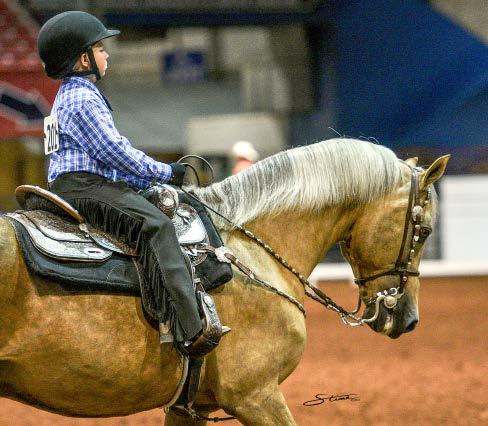
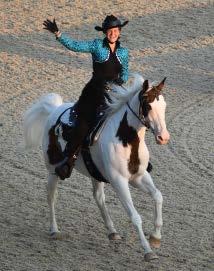

First - Sierra Pacific Team 1
Lynnea Anderson, Pyper Arnold, Summer Nelson, Sara Ransick, and Audrey Ryan
Second - Southern California Team 2
Cassidy Golubiak, Jocelyn Brattain, Makayla Brown, Chloe Kardell, Dara Braunstein
Third - Southern California Team 1
Justine Lyons-Fang, Walker Lefkowitz, Ryder Mosqueda, Kristen Nelson, Sydney Franczak
Fourth - Middle California
Andie Sue Roth, Mia Gonzales, Hannah Young, Kayleah Young, Kaysie Roth
Fifth - Sierra Pacific Team 2
Anwyn Cunha, Stella Enochian, MarieCharlotte Guion, Skyler Lee, Juliana Dabadie
Standard
First - Camino Real/Northwest/Sierra Pacific Meghan Hill, Rachel Bond, Karissa Talent, Malia Uhiki
Second - Southern California
Cassidy Ranes, Christine Brown, Natalie Nelson
Modified
First - Sierra Pacific Team 2
Second - Sierra Pacific Team 1
Third - Middle California
Fourth - Southern California Team 1
Fifth - Southern California Team 2
First - Camino Real/Northwest/Sierra Pacific Second - Southern California
Modified
Sierra Pacific Team 2
Standard
Camino Real/Northwest/Sierra Pacific
Dara Braustein, Juliana Dabadie, Sydney Franczak, Emma Rosas, Kaysie Roth, Audrey Ryan, Malia Ujiki
Pyper Arnold, Jocelyn Brattain, Anwyn Cunha, Mia Gonzales, Marie-Charlotte Guion, Meghan Hill, Skyler Lee, Walker Lefkowitz, Summer Nelson, Sara Ransick, Kayleah Young
First - Karissa Talent
Second - Natalie Nelson
Third - Rachel Bond
First Level
First - Meghan Hill
Second Level
First - Christine Brown
Second - Cassidy Ranes

Training Level - Karissa Talent
First Level - Meghan Hill
Second Level - Christine Brown
Arabian Horse Association High Point

Christine Brown
Special Awards
Western Dressage Association of America

First - Stephanie Unger
Tiny But Mighty Character Cassidy Golubiak
Scandalously DanDee Best Presented Pair
Dressage - Marie-Charlotte Guion Western Dressage - Stephanie Unger
First - Camino Real
Ryann Bodman, Sophia Johnson, Kayla Bentham

Second - Camino Real/Sierra Pacific/Southwest
Tatum Johnson, Paige Shuberg, Sonia Zahradnik
First - Camino Real
Second - Camino Real/Sierra Pacific/Southwest
Camino Real
Stable Managers
Kayla Bentham
Outstanding Turnouts
Ryann Bodman, Paige Schuberg, and Sonia Zahradnik
USEA Awards
Senior Novice Rider A
Third - Ryann Bodman
Junior Novice Rider Third - Sophia Johnson Ninth - Paige Schuberg
Eleventh - Tatem Johnson Breed Awards
Thoroughbred Incentive Program (TIP)
Tatum Johnson - Southwest Region
Special Awards
Tiny But Mighty Character
Kayla Bentham
Scandalously DanDee Best Presented Pair
Tatum Johnson
Modified Novice D
First - Oregon/Sierra Pacific
Quinlyn Kiger, Themis Gabalda, Violet Lorenzen
Second - Big Sky/Inland Empire
Alexis Alred, Emma Durepo, Ayla Middleton
Third - Middle California/Southern California
Emma Rosas, Aiden Beaubien, Aria Contreras
Modified Junior D
First - Middle California/Southern California
Juliana Geiger, Leila Jones, Ava Roberts, Ivory Woodson
Second - Inland Empire/Northwest/Sierra Pacific
Cetari White-Anderson, Lauren Bergendahl, Katelynn Harris
Standard Junior D
First - Southern California
Natalie Coronado, Lily Evans
Second - Sierra Pacific
Isabella Stikes, Pyper Arnold, Leah McAvoy Standard C
First - Sierra Pacific/Southern California Christine Brown, Brianna Pearson
Second - Inland Empire/Sierra Pacific

Lila Swanger, Abigail Durepo, Emma Stewart
Modified Novice D
First - Quinlyn Kiger
Second - Ayla Middleton
Third (tie) - Emma Rosas & Alexis Alred
Fifth (tie) - Themis Gabalda & Emma Durepo Seventh - Violet Lorenzen Eighth (tie) - Aria Contreras & Aiden Beaubien
Modified Junior D
First - Cetari White-Anderson Second - Lauren Bergendahl Third - Ivory Woodson Fourth - Ava Roberts Fifth - Leila Jones Sixth - Juliana Geiger Seventh - Katelynn Karris Standard Junior D
First (tie) - Lily Evans, Pyper Arnold, and Isabella Strikes
Fourth - Natalie Coronado Fifth - Leah McAvoy Standard C First - Christine Brown Second - Abigail Durepo Third - Brianna Pearson Fourth - Emma Stewart Fifth - Lila Swanger
Tiny But Mighty Character Emma Rosas
First
Second




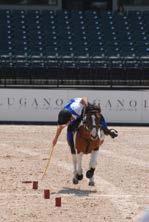








Third
First
First - Soren Smedley
Second - Leila Jones
Horse Management
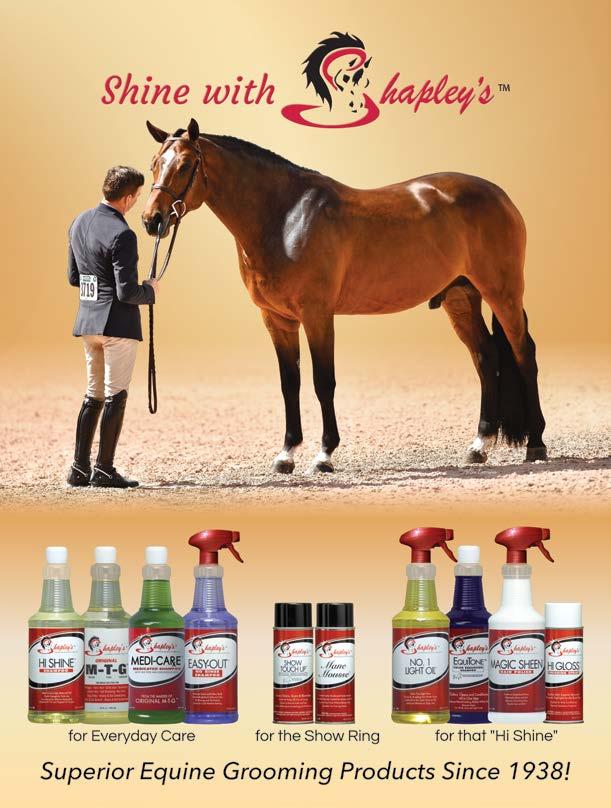
First - Middle California
Leila Jones, Soren Smedley, Ivory Woodson
Margo Leithead Cornerstone
Middle California
Equitation Award
First - Soren Smedley
Second - Leila Jones

Leila Jones
George Helwig Team
Middle California
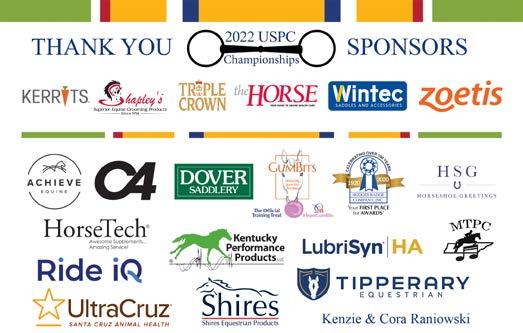

Modified Junior Training Level
First - Carolina
Alyson Roy, Zoie Sitton, Hazel Wade, Penelope Maddalone
Second - Central New England/Great Lakes/ Midwest
Evie Grossman, Aubrey Bedard, Adelyn Pitchforth, Charli Rainbolt, Liadan Siegel
Third - Midsouth/Old Dominion
Finley Kendig, Ava Nieman, Abigail Picou, Megan Hopkins
Fourth - Eastern Pennsylvania Team 1
Abby Limani, Gianna Bower, Leah Gerken, Finley MacIntire, Ava Schmon
Fifth - New Jersey/Sunshine/Tri-State
Amelia Rothenhoefer, Victoria Lubov, Addison Roberts, Vivienne Zediak, Rebekka Selle
Sixth - Capital Team 1
Sophia McCarthy, Amani Almagro, Sofia Dalton, Sarah DeStefano, Allison Smith
Seventh - Eastern Pennsylvania Team 2
Darby Reinbold, Nicole Garcia, Katherine Mentrak, Layla Frantz
Eighth - Maryland
Leo Wise, Isla Deigan, Shannon Zupan, Farryn Kuhn
Ninth - Capital Team 2
Tarini Tippa, Alanna Embrey, Ciana Rutledge, Claire Supercznski
Tenth - Virginia
Elizabeth Symolon, Kate Lancaster, Alexis Souder, Tara Phillips
Standard Training Level
First - Capital/Carolina/Eastern Pennsylvania/Red River
Genevieve Crouch, Emma Chin, Keira O’ConnorReichert, Piper Yates, Caroline Gibson
Second - South/Sunshine/Tri-State
Uma Kraskin, Isabella Ahlum, Kaylee Payment, Lily Wahl Third - Midsouth/Old Dominion
Emma Smith, Zoe Altizer, Delaney Brewer, Breanna Fuchs, Maria Koss
Fourth - Virginia
Catherine Orr, Grace Cronin, Kathryn Meek, Annabella Shores, Ella Sabine Hatcher
Standard First Level and Up
First - Deep South/Midsouth
Jessica Dees, Julia Magsam, Connor Stegeman, Lila Schaffner
Second - Carolina/Tri-State
Makila Beiter, Madelon Harris, Trinity Maddalone Third - Capital/Midsouth/Eastern Pennsylvania

Sophia Braun, Carmela Jenckes, Addie Reed, Liv Cerny

Modified Junior Training Level
First - Carolina
Second - Eastern Pennsylvania Team 1 Third - Central New England/Great Lakes/Midwest Fourth - Maryland
Fifth - Eastern Pennsylvania Team 2 Sixth - Virginia
Seventh - Midsouth/Old Dominion
Eighth - Capital Team 1
Ninth - New Jersey/Sunshine/Tri-State Tenth - Capital Team 2
First - Virginia
Second - South/Sunshine/Tri-State Third - Capital/Carolina/Eastern Pennsylvania/Red River
2022
Championships East: Official Competition Results & Placings
Fourth - Midsouth/Old Dominion
Standard First Level and Up
First - Deep South/Midsouth
Second - Carolina/Tri-State Third - Capital/Eastern Pennsylvania/Midsouth
Modified Junior Training Level
Carolina
Standard Training Level
Virginia
Standard First Level and Up Deep South/Midsouth
Liv Cerny, Layla Frantz, Caroline Gibson, Ella Sabine Hatcher, Megan Hopkins, Maria Koss, Farryn Kuhn, Penelope Maddalone, Trinity Maddalone, Tara Phillips, Lila Schaffner, Ava Schmon, Rebekka Selle, Liadan Siegel, Allison Smith, Claire Supercznyski, Lily Wahl
Delaney Brewer, Emma Chin, Sophia Dalton, Jessica Dees, Nicole Garcia, Madelon Harris, Carmela Jenckes, Uma Kraskin, Julia Magsam, Kathryn Meek, Kiera O’Connor-Reichert, Addie Reed, Alyson Roy, Alexis Souder, Emma Smith, Leo Wise
First - Genevieve Crouch
Second - Keira O’Connor-Reichert
Third - Piper Yates
Fourth - Emma Chin
Fifth - Uma Kraskin
Sixth - Zoe Altizer
Seventh - Isabella Ahlum
Eighth - Delaney Brewer
Ninth - Kaylee Payment Tenth - Catherine Orr
First Level and Up First - Connor Stegeman Second - Julia Magsam Third - Madelon Harris Fourth - Sophia Braun Fifth - Makaila Beiter Sixth - Addie Reed Seventh - Carmela Jenckes
Western First - Jessica Dees

Training Level - Genevieve Crouch
First Level - Connor Stegeman
Thoroughbred Incentive Program (TIP) Training Level - Delaney Brewer First Level and Up - Julia Magsam
Upper-Level Dressage
Julia Magsam
Exemplary Horse Management Team
Standard - Capital/ Carolina/ Eastern Pennsylvania/ Red River
Modified - Eastern Pennsylvania Team 2
Tiny But Mighty Character
Liv Cerny
Scandalously DanDee Best Presented
ponyclub.org


Modified Junior
First - Maryland
Savannah Burnett, Ella Ruth Goodman, Eve McMahon, Savannah Taylor, Rachel Schawrtz
Second - Carolina/Maryland/South
Emma Anderson, Virginia Brooks, Sophia Graham, Katelyn Smith, Aubrey Blackmon
Third - Eastern Pennsylvania/Maryland/ Midsouth Brooke Sidorsky, Alexander Denton, Aurea Dove, Ashley Zupan
First - Eastern Pennsylvania/Maryland
Paige Gibboney, Christina Elliott, Madelyn Miller, Madison Montgomery, Julia Francis
Second - Virginia
Abigail Haskins, Brooke McColl, Madison Ottaviano, Caitlin Stearns, Maria Graham
Third - Capital
Peyton Travis, Allyson Armagost, Erin Kidwell, Avery Kitchen, Hope Hinshaw
Fourth - Delmarva
Lindsey Groves, Jenavieve French, Donald Ruths, Jocelyn Hunt
Fifth - Carolina/Eastern Pennsylvania/New Jersey/ New York Upper Connecticut/Southwest Marissa Redmond, Audrey Jensen, Elizabeth McCallum, Elisabeth Tansey, Maxwell Louis
Sixth - Maryland/Tri-State/Virginia
Lydia McKenzie, Jordan Muniz, Megan Zalesak, Eva McKenzie
First - Maryland
Hayley Spicknall, Isabella Craft, Cassidy Spicknall, Ava Wehrs, Anna Schwartz
Second - Carolina/Central New England/New York/ Upper Connecticut/Sunshine/Western New York Victoria McCallum, Piper Gamin, Peytyn Geer, Asher Quinn
Third - Delmarva/Eastern Pennsylvania Amelia Jaeger, Kate Benjamin, Emma Brooks, Catherine Karp
Fourth - Tri-State/Virginia Natalie Koch, Josephine Barnes, Isabella Cook
Fifth - Capital/Sunshine
Jemma Pryzbocki, Chloe Pleune, Shiloh Rice, Sutton Wetcher, Audrey Buchanan
First - Eastern Pennsylvania/New Jersey
Audrey Buchanan, Margaret Buchanan, Morgan Miller, Lee Rowsell, Brandylola Benedix
Second - Carolina/Delmarva/Virginia Mallory Brazzell, Colby Poe, Donald Ruths, Isabel Kaeppler
Third - South Samuel Moreland, Sophie Redmon, Devon Tresan, Sommer Donaldson
Modified Junior
First - Maryland
Second - Carolina/Maryland/South
Third - Eastern Pennsylvania/Maryland/Midsouth
First - Delmarva
Second - Eastern Pennsylvania/Maryland
Third - Capital
Fourth - Carolina/Eastern Pennsylvania/New Jersey/ New York/Upper Connecticut/Southwest Fifth - Maryland/Tri-State/Virginia
Sixth - Virginia
Standard Novice
First - Tri-State/Virginia Second - Maryland Third - Capital/Sunshine Fourth - Carolina/New York/Upper Connecticut/ Sunshine/Western New York Fifth - Delmarva/Eastern Pennsylvania
Standard Training
First - Eastern Pennsylvania/New Jersey Second - Carolina/Delmarva/Virginia Third - South
Modified Junior Maryland Standard Beginner Novice Delmarva
Standard Novice Tri-State/Virginia Standard Training Eastern Pennsylvania/New Jersey
Brandylola Benedix, Aubrey Blackmon, Audrey Buchanan, Sommer Donaldson, Julia Francis, Maria Graham, Hope Hinshaw, Jocelyn Hunt, Isabel Kaeppler, Catherine Karp, Maxwell Louis, Eva McKenzie, Anna Schwartz, Rachel Schwartz, Ashley Zupan
Emma Anderson, Mallory Brazzell, Virginia Brooks, Audrey Buchanan, Isabelle Cook, Jenavieve French, Paige Gibboney, Ella Ruth Goodman, Sophia Graham, Lindsey Groves, Amelia Jaeger, Erin Kidwell, Avery Kitchen, Natalie Koch, Elizabeth McCallum, Lydia
McKenzie, Eve McMahon, Morgan Miller, Madison Montgomery, Jordan Muniz, Chloe Pleune, Sophie Redmon, Brooke Sidorsky, Elisabeth Tansey, Savannah Taylor, Peyton Travis, Ava Wehrs, Megan Zalesak
Modified Beginner Novice
First - Savannah Burnett Second -Savannah Taylor Third - Alexander Denton Fourth - Ella Ruth Goodman Fifth - Aurea Dove Sixth - Virginia Brooks Seventh - Booke Sidorsky
Modified Novice First - Katelyn Smith Second - Emma Anderson
Standard Beginner Novice A
First - Abigail Haskins Second - Elisabeth Tansey Third - Madison Ottaviano Fourth - Allyson Armagost Fifth - Jenavieve French Sixth - Madelyn Miller Seventh - Caitlin Stearns Eighth - Christina Elliott Ninth - Avery Kitchen
Standard Beginner Novice B
First - Peyton Travis Second - Paige Gibboney Third - Megan Zalesak Fourth - Brooke McColl Fifth - Lydia McKenzie Sixth - Madison Montgomery Seventh - Donald Ruths Eighth - Marissa Redmond Ninth - Lindsey Groves
ponyclub.org

First - Amelia Jaeger
Second -Peytyn Geer
Third - Piper Gamin
Fourth - Hayley Spicknall
Fifth - Sutton Wetcher
Sixth - Shiloh Rice
Seventh - Isabella Craft Eighth - Asher Quinn
Standard
First - Ava Wehrs
Second - Emma Brooks
Third - Victoria McCallum
Fourth - Kate Benjamin Fifth - Natalie Koch Sixth - Josephine Barnes
Seventh - Cassidy Spicknall
Standard Training
First - Margaret Buchanan
Second - Colby Poe
Third - Lee Rowsell
Fourth - Morgan Miller
Fifth - Mallory Brazzell
Sixth - Audrey Buchanan
Seventh - Donald Ruths
Eighth - Sophie Redmon
Ninth - Devon Tresan
American Connemara Pony Society
High Point
Margaret Buchanan
Draft Cross Breeders and Owners (DCBOA)
Donald J. Ruths
Thoroughbred Incentive Program (TIP)


Beginner Novice - Jenavieve French
Novice - Peytyn Geer
Training - Audrey Buchanan
Special Awards
Tiny But Mighty Character
Savannah Burnett
Scandalously DanDee Best Presented Pair
Devon Tresan
Modified
First - Maryland/Sunshine (Color Crush)
Madelyn Dietrich Cochran, Sarah Batstone Roberts, Kayla Corry, Ellery Cully, Isabella Mentzer
Standard Junior First - Tri-State (The Hurricanes)
Westley Burchianti, Colton Burchianti, Riley Fitzpatrick, Zachary McWreath, Katie Spindel
Second - Central New England/Tri-State (The Purple People Eaters)

Isabelle Gilbert, Amelia Avery, Meredith Hurwitch, Julia Levreault, Lydia Szklinski
Standard Senior
First - Sunshine (Mischief Managed)
Haley Geraci, Kathryn Abend, Sage Clarich, Alexia Ray
Second - Capital/Maryland/Metropolitan (Reckless)
Drew Keiser, Kate Keiser, Brooke Keiser, Susanne Robinson
Third - Tri-State (Four Locos)
Emily Garside, Miriam Bolyard, Brooke Burchianti, Lauren Mansky
Modified
First - Maryland/Sunshine
Standard Junior First - Central New England/Tri-State Second - Tri-State Standard Senior First - Tri-State Second - Sunshine Third - Capital/Maryland/Metropolitan
Modified Maryland Standard Junior Central New England/Tri-State Standard Senior Tri-State
Tiny But Mighty Character Westly Burchianti
Frances E. Pitts Memorial Lauren Mansky
Scandalously DanDee Best Presented Pair
Lydia Szklinski
First - Central New England/Delmarva
Leah Sawin, Elle Chick, Willow Folsom, Brielle French Second - Lake Shore/Maryland/Virginia Matilda Rossbach, Layla Dahlke, Hilah Daman, Josephine Pavis
Third - Midsouth

Shelby McHugh, Addison Bubonic, Zoe Rizzuto
Modified Junior D
First - New Jersey/Red River
Andrea Goodwin, Haylie Carpenter, Kylie Guarnera, Olivia Hicok
Second - Great Lakes
Catherine Keopke, Isabella Field, Mara Keyes, Ryla Tengdin
Third - Sunshine
Audrey Johnson, Clara Sipple, Clara Stephens, PJ Young Fourth - Central New England/Maryland/Midsouth Lillianna Cawthron, Liliana Amsabaugh, Julia Findley
Fifth - New Jersey 1
Grace Husby, Addison Fuhrmann, Ashley Kitchens, Anneliese Thompson Sixth - New Jersey 2
Alyssa Kitchens, Sofie Reuter, Emilia Thompson
Standard Junior D First - Midsouth
Kathryn Denkewalter, Lillie Cercone, Reagan Smith Second - Maryland
Charlotte Dohne, Sophia Harris, Lydia West, Marina Zelo
Third - Central New England/Northern Lakes/ White Mountain
Abby Hus, Lilly Fraim, Riley Stephens, Annika Vossen
Modified Novice D
First - Willow Folsom
Second - Hilah Daman Third - Addison Bubonic Fourth - Leah Sawin Fifth - Matilda Rossbach Sixth - Zoe Rizzuto Seventh - Elle Chick Eighth - Layla Dahlke Ninth - Shelby McHugh Tenth - Josephine Pavis
Modified Junior D
First - Catherine Koepke Second - PJ Young Third - Kylie Guarnera Fourth - Ryla Tengdin Fifth - Haylie Carpenter Sixth - Olivia Hicok Seventh - Addison Fuhrmann Eighth - Julia Findley Ninth - Clara Stephens Tenth - Isabella Field
Standard Junior D
First - Kathryn Denkewalter Second - Marina Zelo Third - Lillie Cercone Fourth - Charlotte Dohr Fifth - Reagen Smith Sixth - Annika Vosser Seventh - Sophia Harris Eighth - Riley Stephens Ninth - Lilly Fraim Tenth - Abby Hus Eleventh - Lydia West
First - Kazzandra Higgins Second - Laura Chin Third - Lillian Weidner
Tiny But Mighty Character Olivia Hicok

Modified Junior A
First - Eastern Pennsylvania/Tri-State
Cora Fisher, Cady Hahn, Chloe Mann, Amber Brownlee, Suzanna Gebhart
Second - Sunshine
Aubrey Gholston, Aubrey Bessellieu, Caroline Ford, Kayleigh Niks
Third - Carolina
Carter Wade, Chloe Sharpe, Baylon Hubbs
Fourth - Delmarva
Madison Baker, Eliza Kimball, Juliana Lambertson, Leah Vanderhoff, Virginia Chapman
Fifth - Midsouth
Ellie Cheung, Savannah Nieman, Ana Young, Mayela Salazar
Sixth - Delmarva/Maryland
Claire McMillan, Marley Mentzer, Samantha Spicknall, Clara Gulick
Modified Junior B
First - Maryland
Scarlett Nossel, Evangeline Rhodes, Jaidyn Shore, Dylan Smith, Bailey Lightner
Second - Carolina/Eastern Pennsylvania
Avery Martin, Gabby Razzi, Zoe Rush, William Slater, Hadley Martin
Third - Delmarva/Midsouth
Olivia Trotter, Olivia Hunt, Brooke Noel, lila Smejkal, Paige Geiter
Fourth - Virginia
Madeline Riley, Abigail De Michele, Katie Helge, Liliana Young, Sara Moezie
Fifth - Delmarva/North Central Prairie/New Jersey Elisabeth Poikans, Kennedy Davidson, Elabelle Bent, Madelyn Moore, Faye Warner
Sixth - Old Dominion
Robin Austin, Selah Bowman, Molly Allen, Madison Jordan, Mattea Novi
Modified Senior First - Crysta Bessellieu Second - Jordan Altman
Standard Junior
First - Eastern Pennsylvania/Great Lakes/South/ Sunshine Kathryn Heaman, Alexandria Clenney, Emma Watson, John Rogers, Finley Siegel
Second - Delmarva Aleisha Teets, Kelley Abell, Parker Carey, Tegan Carey, Addison Eader
Third - Capital/Maryland/Western New York Gretchen Wolfe, Jaelyn Fordan, Charlotte Eskeland, Zoe Cavalcanti, Eve Ackiewicz
Fourth - Virginia
Ashley Cosenza, Raina LaBonte, Gabriella Muniz, Miranda Slayton, Hailey Slayton
Fifth - Tri-State Lauren Michael, Miranda Donnelly, Celia Otterstetter, Clare Posey
Sixth - New Jersey/Virginia Jolene Grover, Kathryn Symolon, Faith Crespo, Ryann Sadlowski
Standard Senior First - Capital
Amina Harouna, Eleanor Bayly, Alison Hardman, Mackenzie Hicks, Hannah Norman
Second - Virginia Margaret De Michele, Lauren Erickson, Riona Callahan, Lauren Scherrer, Maria Enriquez
Third - Carolina
Ashley Colburn, Annabelle DeVault, Mary Elwyne Kennedy, Alexandra McAllister, Alexis
ponyclub.org

Modified Junior A
First - Eastern Pennsylvania/Tri-State Second - Delmarva/Maryland Third - Carolina Fourth - Sunshine Fifth - Midsouth Sixth - Delmarva
Modified Junior B
First - Maryland Second - Old Dominion Third - Delmarva/Midsouth Fourth - Virginia Fifth - Carolina/Eastern Pennsylvania Sixth - Delmarva/Northern Central Prairie/ New Jersey
Modified Senior First - Jordan Altman Second - Crystal Bessellieu
Standard Junior First - Eastern Pennsylvania/Great Lakes/South/ Sunshine Second - Tri-State Third - Virginia Fourth - New Jersey Fifth - Capital/Maryland/Western New York Sixth - Delmarva
Standard Senior First - Virginia Second - Capital Third - Maryland/Old Dominion Fourth - Carolina Fifth - Capital/New Jersey
Modified Junior A Eastern Pennsylvania/Tri-State Modified Junior B Maryland
Modified Senior Jordan Altman Standard Junior Eastern Pennsylvania/Great Lakes/South/Sunshine Standard Senior Virginia Equitation
Modified Junior A
First - Ellie Cheung Second - Caroline Ford Third - Ana Young Fourth - Cady Hahn Fifth - Chloe Mann Sixth - Savannah Nieman
Modified Junior B First - Abigail De Michele Second - Olivia Trotter Third - Kennedy Davidson Fourth - Zoe Rush Fifth - Katie Helge Sixth - Selah Bowman
Modified Senior First - Crystal Bessellieu Second - Jordan Altman
Standard Junior First - Zoe Cavalcanti Second - Kelley Abell Third - Ashley Cosenza
Fourth - Aleisha Teets Fifth - Tegan Carey Sixth - Parker Carey Standard Senior First - Margaret De Michele Second - Audrey Clark Third - Mackenzie Hicks Fourth - Amina Harouna Fifth - Ashley Colburn Sixth - Lauren Sherrer
Eve Ackiewicz, Virginia Chapman, Sydney Dennis, Addison Eader, Maria Enriquez, Suzanna Gebhart, Paige Geiter, Clara Gulick, Baylon Hubbs, Bailey Lightner, Hadley Martin, Sara Moezie, Kayleigh Niks, Mattea Novi, Hannah Norman, Clare Posey, Alexis Ryan, Ryann Sadlowski, Mayela Salazar, Finley Siegel, Hailey Slaton, Faye Warner
Kelley Abell, Molly Allen, Jordan Altman, Robin Austin, Madison Baker, Eleanor Bayly, Aubrey Bessellieu, Selah Bowman, Amber Brownlee, Zoe Cavalcanti, Tegan Carey, Meredith Chance, Ellie Cheung, Alexandria Clenney, Ashley Colburn, Kennedy Davidson, Abigail De Michele, Margaret
De Michele, Miranda Donnelly, Lauren Erickson, Cora Fisher, Caroline Ford, Jolene Grover, Cady Hahn, Amina Harouna, Kathryn Heaman, Katie Helge, Mackenzie Hicks, Olivia Hunt, Madison Jordan, Raina LaBonte, Avery Martin, Gabriella Muniz, Scarlett Nossel, Celia Otterstetter, Elisabeth Poikans, Gabby Razzi, Madeline Riley, Evangeline Rhodes, John Rogers, Cassandra Rutledge, Lauren Scherrer, Jaidyn Shore, William Slater, Lila Smejkal, Dylan Smith, Samantha Spicknall, Aleisha Teets, Olivia Trotter, Carter Wade, Emma Watson, Gretchen Wolfe
Thoroughbred Incentive Program (TIP) Developing Horse/Rider - Kathryn Symolon Advanced - Caleigh Richardt Special Awards

Five Clear Rounds Alexandria Clenney & Charlotte Eskeland Tiny But Mighty Character Hannah Norman Scandalously DanDee Best Presented Pair Faith Crespo
ponyclub.org
Modified Pre-Novice Female
First - Caroline Manthy Second - Matilda Westrich Third - Ryleigh Adams
Modified Pre-Novice Male
First - Taylor Smith Second - Aiden Smith
Modified Novice Female
First - Sadie Edwards Second - Grace Bickenbach Third - Kate Bickenbach Fourth - Molly Monahan Fifth - Annabelle Brown Sixth - London Wilde
Modified Novice Male
First - Mason Muniz Second - Charles Smith
Modified Intermediate Female
First - Sadie Vinson
Standard Novice
First - Sarah Dempsey
Standard Intermediate Female
First - Catherine Staley Second - Erin Reeder Third - Katherine Cushing Fourth - Camellia Gabel
Standard Junior Female First - Ariana Dickey
Standard Junior Male
First - Colton Attick Second - Cian Yorba
Modified
First - Maryland/Carolina Sadie Edwards, Ryleigh Adams, Caroline Manthy, Molly Monahan
Second - Capital/Carolina Sadie vinson, Kate Bickenbach, Grace Bickenbach, London Wilde
Third - Central New Enlgand Charles Smith, Taylor Smith, Aiden Smith
Fourth - Virginia/Midsouth Mason Muniz, Annabelle Brown, Matilda Westrich
Standard
First - Capital/Maryland Ariana Dickey, Colton Attick, Camellia Gabel, Erin Reeder
Second - Carolina/Midsouth/Western New York Cian Yorba, Katherine Cushing, Sarah Dempsey, Catherine Staley
Modified

Maryland/Carolina
Standard Capital/Maryland
Ryleigh Adams, Colton Attick, Annabelle Brown, Katherine Cushing, Sadie Edwards, Camellia Gabel, Caroline Manthy, Molly Monahan, Catherine Staley, Sadie Vinson, London Wilde, Cian Yorba
Colton
Female
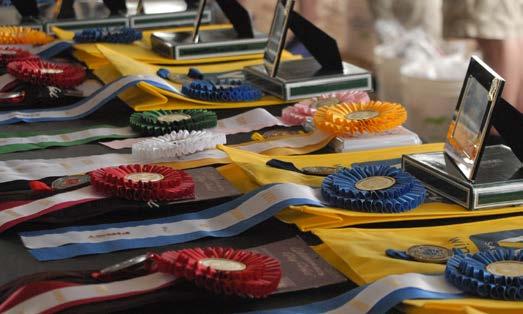
Tiny But Mighty Character

Ryleigh Adams
Katherine Cushing Geriann Henderson Sportsmanship Sadie Vinson
George Helwig Team Maryland/Carolina Modified Team Sacksen
Taylor Smith Stettinius Catherine Staley
